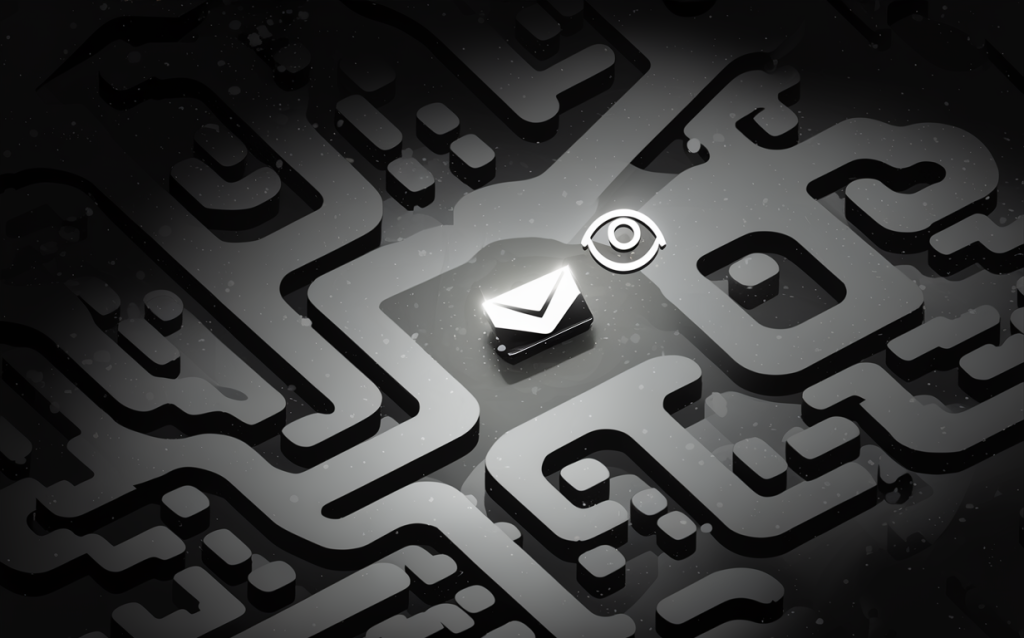Sometimes, the most stressful part of a meeting is its arrangement. Crafting the perfect meeting request email can feel like trying to walk through a minefield of etiquette and expectations – and not fall.
With the right approach, however, this task can transform from a terrible chore into an opportunity to impress and engage.
Let’s explore how to write a meeting request email that makes every interaction a step towards success.
When to Use Meeting Request Emails

1. Initiating Business Collaborations
When eyeing a potential partnership or collaboration, a well-crafted business meeting request email can set the stage for a fruitful relationship. Use this opportunity to introduce your company, briefly outline your proposal’s value, and suggest a meeting to discuss possibilities in detail. Think of it as your first impression, where clarity about the meeting agenda and respect for the recipient’s schedule are paramount.
2. Scheduling Sales Meetings
Sales meetings are pivotal in converting leads into customers. Crafting an effective meeting request email involves highlighting how your product or service can solve the recipient’s main pain points. A compelling subject line, a brief mention of your offering’s benefits, and a suggestion for a quick chat to dive deeper can increase your chances of securing that crucial appointment.
3. Organizing Team Meetings
Whether it’s for regular check-ins, project updates, or brainstorming sessions, sending out a meeting request to your team requires a balance between formality and approachability. Emphasize the meeting’s objective, propose a suitable date and time, and encourage participation by mentioning the key points of discussion to make the most of the collective time.
4. Requesting Information or Feedback
When you need specific information or feedback from colleagues, clients, or industry experts, a targeted meeting can be more effective than back-and-forth emails. Your request should clearly state the purpose of the meeting, why you value the recipient’s input, and propose several times to accommodate their busy schedule.

5. Networking and Mentorship
Reaching out for a virtual coffee or a brief chat with someone you admire professionally requires a respectful and personalized approach. Express genuine interest in their work, briefly introduce yourself and your intentions for the meeting, and propose a few convenient times. A professional yet warm tone can make your email stand out.
6. Cold Email Outreach
Cold email outreach for business development or job seeking is challenging but can be rewarding with the right strategy. An effective cold meeting request email should grab attention with an irresistible subject line, establish a connection by mentioning any commonalities or compliments, and clearly state your intention for wanting to meet, all while being concise and respectful of the recipient’s time.
7. Following Up on Previous Discussions
After a promising discussion or encounter, sending a follow-up email to request a more formal meeting can help capitalize on the momentum. Recap the key points from your initial interaction, suggest a next step in the form of a meeting, and offer a couple of dates and times to choose from, showing your eagerness to continue the conversation.
8. Rescheduling or Cancelling Meetings
Life happens, and sometimes meetings need to be rescheduled or cancelled. When writing such a request, maintain a professional and apologetic tone, propose alternative dates, and express your continued interest in the meeting. This respectful approach ensures the relationship remains positive despite the change of plans.
Best Practices for Sending a Meeting Request Email

1. Crafting a Compelling Subject Line
The subject line is the first impression your email makes. It should be clear, intriguing, and concise, ensuring the recipient knows the email’s purpose at a glance.
For a business meeting request, consider including the company name, your job title, and the meeting’s purpose. Example: “Request for Strategy Meeting: [Your Company Name] and [Their Company Name] Collaboration.”
2. Personalizing the Greeting
Start your email with a professional greeting that includes the recipient’s name. Personalization goes a long way in making the recipient feel valued and increases the likelihood of a positive response.
Use “Dear [Recipient’s Name]” for formal requests or “Hi [Recipient’s Name]” for a more casual tone, depending on your relationship with the recipient and the company culture.
3. Clearly Stating the Purpose
Be concise and specific about the meeting’s purpose right from the beginning. Mention the main pain points or topics you wish to address and how this meeting could benefit both parties. This clarity helps the recipient understand the importance of the meeting and how it aligns with their interests or responsibilities.
4. Proposing a Specific Date and Time
Suggest a specific date and time for the meeting, providing alternatives to accommodate the recipient’s schedule. This shows consideration for their time and increases the chances of finding a mutually convenient slot. Mention that you’re open to adjusting as necessary, inviting them to propose a different time if your suggestions don’t work.
5. Including a Meeting Agenda
A brief agenda or list of discussion points in your email can help the recipient prepare for the meeting and understand its scope. This approach ensures that the meeting remains focused and productive, addressing the key topics efficiently.

6. Offering a Virtual Meeting Option
In today’s digital age, offering the option for a virtual meeting can be very appealing, especially if scheduling or geographical constraints are a concern. Specify the platform you plan to use and ensure it’s commonly accessible, emphasizing your flexibility in accommodating an in-person or online meeting.
7. Utilizing Email Templates Thoughtfully
While email templates can save time, personalize them for each recipient to maintain a genuine connection. Incorporate specific details relevant to the recipient and the proposed meeting to avoid a generic tone. Tailoring your message shows effort and can significantly impact the recipient’s willingness to engage.
8. Following Up Respectfully
If you don’t receive a response within a reasonable timeframe, sending a polite follow-up email can be beneficial. Keep a respectful tone, reiterate the meeting’s potential value, and express your understanding of their busy schedule. A gentle reminder can prompt a reply without appearing pushy.
9. Emphasizing the Meeting’s Benefits
In your email, clearly articulate the benefits of the meeting for both parties. Highlight how addressing the main pain point or brainstorming ideas can lead to mutual gains. This not only shows that you’ve done your homework but also aligns your interests with theirs, making the meeting more appealing.
10. Being Flexible with the Meeting Format
Indicate your willingness to adapt the meeting format to suit the recipient’s preferences, whether it’s an in-person meeting, a quick virtual chat, or a longer online meeting. Flexibility in accommodating their comfort level and availability can greatly increase the chances of a positive reply.
11. Addressing the Recipient Professionally
Use a professional tone throughout the email, even if you have a somewhat casual relationship with the recipient. This shows respect for their position and the business context of your request.
Start with a professional greeting like “Dear [Recipient’s Name]” or “Hello [Recipient’s Name],” and close with “Best regards” or “Kind regards.”
12. Specifying the Request Clearly
Ensure your email explicitly requests what you’re hoping to achieve, such as scheduling a meeting, arranging a call, or getting a confirmation for a proposed time.
Use clear, direct language to make your request undeniable, like “I would like to request a meeting” or “Could we schedule a time to discuss?”
13. Tailoring the Email to the Target Audience
Customize your message based on the recipient’s role, industry, and potential interests. A well-tailored email shows that you understand their challenges and goals, making your meeting request more relevant and compelling. Use specifics related to their job title or company achievements to personalize your approach.
14. Including a Call to Action
End your email with a clear call to action that prompts the recipient to respond. This could be as simple as asking them to reply with a convenient meeting time or to confirm their availability for the proposed date.
Phrases like “Please let me know your availability” or “I look forward to your confirmation” can guide the recipient towards the next step.
15. Keeping the Email Concise
Respect the recipient’s time by keeping your email brief yet comprehensive. Ensure every sentence serves a purpose, whether it’s to introduce the meeting’s rationale, propose times, or express flexibility. A concise email is more likely to be read and acted upon than a lengthy one.
16. Planning for Follow-Ups
Anticipate the need for follow-up emails, especially if you don’t receive a response within a week. Your follow-up should be polite, concise, and remind the recipient of the previous email’s content. Mentioning any updates or emphasizing the meeting’s importance without being intrusive can encourage a reply.
Templates for Meeting Requests via Email
Template for Meeting Request After a Conference
Subject Line:
Let’s Continue the Conversation from [Conference Name]
Email Body:
Dear [Recipient’s Name],
I hope this message finds you well. It was a pleasure connecting with you at [Conference Name] last week. Your insights on [specific topic discussed] were incredibly enlightening and resonated with some of the challenges and opportunities we are exploring at [Your Company Name].
I believe there’s much more we can discuss and possibly collaborate on. Would you be open to scheduling a meeting in the next few weeks to continue our conversation? I’m particularly interested in diving deeper into [mention a specific point of interest] and exploring how we might work together on this.
I am flexible with dates and times, but to get the ball rolling, how does [insert date] at [insert time] work for you for a [virtual/in-person] meeting? Of course, if there’s another time that’s more convenient for you, I’m happy to accommodate.
Looking forward to the opportunity to discuss this further and see where our mutual interests could lead. Please let me know your availability, and I will arrange everything accordingly.
Best regards,
[Your Name]
[Your Job Title]
[Your Contact Information]
[Your Company Name]
Template for a Meeting Request in Headquarters
Subject Line:
Invitation to Discuss Opportunities at [Your Company] Headquarters
Email Body:
Dear [Recipient’s Name],
I hope this email finds you well. Following our recent conversations, I am excited about the potential synergies between our teams and how we can leverage these to achieve mutual success. To further explore these opportunities, I would like to invite you to our headquarters for a meeting.
Our aim is to brainstorm ideas, discuss potential collaboration areas, and lay the groundwork for a partnership that aligns with our mutual goals. I believe an in-person meeting would be the most effective way to achieve this, allowing us to engage more directly and comprehensively.
Could you kindly confirm your availability for a meeting on [insert date] or [alternative date]? We are flexible and willing to accommodate a convenient time for you. Our team is eager to host you and discuss how we can move forward together.
Please let me know if you need any accommodations or additional information ahead of your visit. We are looking forward to welcoming you to our office and taking this first step towards what we hope will be a fruitful collaboration.
Best regards,
[Your Name]
[Your Job Title]
[Your Contact Information]
[Your Company Name]
Template for a Quick Virtual Meeting Request
Subject Line:
Quick Sync-Up: Exploring [Topic/Project Name] Opportunities
Email Body:
Dear [Recipient’s Name],
I hope you’re doing well. In light of our recent discussions around [Topic/Project Name], I believe a quick virtual meeting could be incredibly beneficial to further align our strategies and expectations.
Would you be available for a brief 30-minute meeting online next week? This would allow us to efficiently cover the key points and determine the best course of action moving forward. I propose [insert date and time], but I’m more than willing to adjust to a more convenient time for you.
Our goal is to ensure that we are on the same page and to identify any immediate steps that need to be taken to advance our project/initiative. I look forward to your insights and am confident that this discussion will be a valuable step in our collaboration.
Kindly confirm your availability or suggest an alternative time that suits you better. I will follow up with a meeting invitation and the necessary details.
Thank you for considering this request. I am looking forward to our conversation.
Best regards,
[Your Name]
[Your Job Title]
[Your Contact Information]
[Your Company Name]
Template for a Formal Business Meeting Request with a Potential Client
Subject Line:
Formal Meeting Request: Exploring Business Opportunities Together
Email Body:
Dear [Recipient’s Name],
I trust this email finds you well. As we continue to seek out valuable partnerships that can drive our mutual growth, your company’s recent initiatives in [industry or project area] have caught our attention. In this spirit, I am reaching out to propose a formal meeting between our teams.
Our objective is to discuss potential collaboration opportunities that can benefit both [Recipient’s Company Name] and [Your Company Name]. We are particularly interested in [briefly outline potential areas of collaboration or interest], and we believe that a detailed discussion could reveal areas of mutual benefit.
Would it be possible to schedule a meeting within the next few weeks at a time that is convenient for you? We are open to meeting virtually or at your office, whichever you prefer. Our team is fully prepared to share insights, data, and strategies that could lay the foundation for a successful partnership.
Please let me know your availability so we can arrange the details. Your consideration of this proposal is greatly appreciated, and we are hopeful for the opportunity to explore how our companies can work together effectively.
Looking forward to your positive response and the possibility of meeting soon.
Kind regards,
[Your Name]
[Your Job Title]
[Your Contact Information]
[Your Company Name]
Template for a Reschedule Meeting Request
Subject Line:
Request to Reschedule Our Upcoming Meeting on [Original Meeting Date]
Email Body:
Dear [Recipient’s Name],
I hope this email finds you well. Due to unforeseen circumstances, I am writing to request a rescheduling of our meeting originally planned for [original meeting date]. I sincerely apologize for any inconvenience this may cause and appreciate your understanding and flexibility.
Could we consider arranging the meeting for a new date within the next few weeks? I believe this discussion is crucial for our ongoing projects and collaboration, and I want to ensure we have a productive session without any rush.
Please let me know your availability for the coming weeks so we can find a convenient time to reschedule. Your cooperation and understanding in this matter are greatly appreciated, and I look forward to our valuable conversation.
Thank you for your kind consideration. I will be on standby for your response.
Best regards,
[Your Name]
[Your Job Title]
[Your Contact Information]
[Your Company Name]
Template for a Sales Meeting Request with a New Client
Subject Line:
Opportunity for Collaboration: Requesting a Meeting to Discuss [Product/Service]
Email Body:
Dear [Recipient’s Name],
I hope this message finds you thriving. My name is [Your Name], and I am with [Your Company Name], where we specialize in [brief description of product/service]. Having learned about your company’s goals and challenges, I am convinced that we can offer valuable solutions to help you achieve your objectives.
I would like to request a meeting with you in the coming weeks to discuss how our [product/service] can address your needs, particularly focusing on [specific pain points or opportunities]. This meeting would be a great platform for us to explore potential collaboration areas and how our offerings can be tailored to support your business.
Would [insert a couple of proposed dates and times] work for you for an online meeting? I am eager to introduce you to the possibilities that our [product/service] can unlock for your team and to hear more about your specific needs and expectations.
Please let me know your preferred date and time, and I will make the necessary arrangements. I am looking forward to the opportunity to discuss this exciting prospect with you further.
Kind regards,
[Your Name]
[Your Job Title]
[Your Contact Information]
[Your Company Name]
Template for a Team Meeting Request for Project Kickoff
Subject Line:
Kickoff Meeting Request: Initiating Project [Project Name]
Email Body:
Dear Team,
I hope you are all doing well. As we gear up to begin our journey on [Project Name], it’s crucial that we start on the right foot with a comprehensive kickoff meeting. This session will provide us with the opportunity to align our goals, understand our roles, and set clear expectations for the project’s success.
I propose we schedule our kickoff meeting for [insert date and time]. This meeting will be our first step towards a collaborative and successful project completion, allowing us to brainstorm ideas, discuss the project timeline, and clarify any immediate questions or concerns.
Your participation is vital, and I encourage everyone to come prepared with any initial thoughts or questions related to the project. Please confirm your availability for the proposed time or suggest an alternative if you have prior commitments.
Let’s use this meeting to ensure we are all aligned and excited about the work ahead. I am looking forward to getting started and witnessing the great work we will achieve together.
Best regards,
[Your Name]
[Your Job Title]
[Your Contact Information]
[Your Company Name]
Template for a Follow-Up Meeting Request After Initial Discussion
Subject Line:
Follow-Up Meeting Request: Next Steps for [Project/Initiative Name]
Email Body:
Dear [Recipient’s Name],
I hope you are doing well since our last conversation. It was a pleasure discussing [brief recap of what was discussed] with you. I believe there’s significant potential for us to delve deeper into this matter and explore actionable steps forward.
To build on our initial discussion, I would like to request a follow-up meeting. This would allow us to outline a clear plan, address any outstanding questions, and ensure we are aligned in our objectives and expectations.
Could you please let me know your availability for a quick meeting next week? I am flexible and can adjust to suit your schedule, whether you prefer an online meeting or another format that works best for you.
I am looking forward to continuing our conversation and moving towards a productive partnership.
Warm regards,
[Your Name]
[Your Job Title]
[Your Contact Information]
[Your Company Name]
Template for Requesting a Meeting to Address Specific Challenges
Subject Line:
Meeting Request: Addressing Challenges in [Specific Area/Project]
Email Body:
Dear [Recipient’s Name],
As we navigate through our current projects, I’ve observed some challenges in [specific area/project] that warrant our immediate attention. In light of this, I am reaching out to request a meeting where we can collaboratively explore solutions and strategies to overcome these hurdles.
I believe that by coming together to discuss this matter directly, we can generate ideas and approaches that will lead us to a successful resolution. This meeting will be an essential step in ensuring our project’s continued progress and effectiveness.
Please let me know a convenient time for you in the next few days for this critical discussion. I am willing to accommodate your schedule and can organize for this to be an online meeting if that’s more convenient.
Your insight and expertise are highly valued, and I am confident that together we can address these challenges effectively.
Looking forward to your prompt response.
Best,
[Your Name]
[Your Job Title]
[Your Contact Information]
[Your Company Name]
Template for Requesting a Strategic Planning Meeting
Subject Line:
Strategic Planning Meeting Request: Shaping Our Future Direction
Email Body:
Dear [Recipient’s Name],
In our quest for continued growth and innovation, it’s crucial that we periodically come together to review our strategies and set clear directions for the future. To this end, I propose we schedule a strategic planning meeting.
This meeting will provide us an opportunity to assess our current standing, identify opportunities for improvement, and set ambitious but achievable goals for the next phase of our journey. I am confident that with our combined insights and commitment, we can outline a robust plan that will guide us toward success.
Please share your availability over the next few weeks so we can arrange this important meeting. I suggest allocating at least [X hours] to ensure we can cover all necessary ground without rush. Whether you prefer an in-person gathering or an online session, I’ll make all the necessary arrangements to facilitate our discussion.
Your participation is crucial, and I am looking forward to your valuable contributions as we shape the future of [Your Company Name] together.
Sincerely,
[Your Name]
[Your Job Title]
[Your Contact Information]
[Your Company Name]
Template for Initiating a Cross-Departmental Collaboration Meeting
Subject Line:
Cross-Departmental Meeting Request: Enhancing Collaboration on [Project/Initiative Name]
Email Body:
Dear [Recipient’s Name],
I hope this message finds you well. As we strive to foster stronger collaboration between our departments, I believe it’s crucial to initiate a dedicated discussion around [Project/Initiative Name]. This meeting aims to bring together key stakeholders from both teams to explore synergies, share insights, and address any potential challenges upfront.
I am reaching out to request your participation in this important meeting. Your expertise and insights would be invaluable as we discuss ways to enhance our collaboration and ensure the success of [Project/Initiative Name].
Could you please share your availability for an online meeting in the coming weeks? I am keen to arrange a time that accommodates all key participants, ensuring a productive and inclusive discussion.
This is just the first step in what I hope will be a highly beneficial collaboration for our teams. I look forward to your positive response and to arranging a meeting that could mark the beginning of a successful partnership.
Best regards,
[Your Name]
[Your Job Title]
[Your Contact Information]
[Your Company Name]
Template for Scheduling a Client Review Meeting
Subject Line:
Client Review Meeting Request: Evaluating Our Progress and Planning Ahead
Email Body:
Dear [Client’s Name],
As part of our commitment to delivering exceptional value and ensuring your success, we periodically review our progress and strategize for the future. To this end, I would like to schedule a client review meeting to discuss our achievements, address any challenges, and outline plans for the upcoming period.
This meeting will provide an opportunity to assess our collaboration’s effectiveness and ensure we are aligned with your evolving needs and goals. Your feedback is crucial to our continuous improvement and mutual growth.
Please let me know your availability for an online meeting in the next few weeks. I will do my best to accommodate your schedule and ensure we have a constructive and forward-looking discussion.
I am confident that by reviewing our journey and planning together, we can set the stage for even greater achievements. Thank you for considering this meeting request. I look forward to your response.
Warm regards,
[Your Name]
[Your Position]
[Your Contact Information]
[Your Company Name]
Template for Proposing a Solution-Focused Meeting
Subject Line:
Meeting Request: Addressing [Specific Issue] with Targeted Solutions
Email Body:
Dear [Recipient’s Name],
In light of recent challenges regarding [specific issue], I propose we hold a dedicated meeting to tackle this matter head-on. This session will be focused on identifying practical solutions, assigning responsibilities, and setting timelines to ensure we overcome this hurdle efficiently and effectively.
Your input would be invaluable, given your expertise and understanding of the intricacies involved. I believe that by working together, we can devise a strategic approach that addresses the root causes and paves the way for improved performance moving forward.
Could you please advise on your availability for a brief online meeting within the next two weeks? I am eager to align our efforts and move swiftly towards a resolution.
This meeting is just the first step in a comprehensive strategy to address [specific issue], and your active participation is crucial. I appreciate your attention to this matter and look forward to your insights.
Thank you in advance for your cooperation and readiness to contribute to a solution.
Best regards,
[Your Name]
[Your Job Title]
[Your Contact Information]
[Your Company Name]
Key Takeaways
- Effective meeting request emails are concise, clearly stating the purpose, agenda, and desired outcome of the meeting.
- Personalizing your email, including using the recipient’s name and referencing shared interests or past interactions, enhances engagement.
- A compelling subject line is crucial to ensure your email gets opened and read.
- Offering specific dates and times for the meeting while showing flexibility reflects respect for the recipient’s schedule.
- Including a brief agenda or discussion points in the email helps set expectations and prepares participants for a productive meeting.
- Utilizing professional and respectful tone throughout the email is essential for maintaining positive relationships.
- Follow-up emails may be necessary and should be sent with consideration, especially if you don’t receive a response initially.
- Write meeting request emails to save time, but customization is key to making all meeting request email templates feel personal and relevant.
- The goal of business meeting request emails is not just to secure a meeting but to open the door for meaningful collaboration and dialogue.
- Clear calls to action, such as asking for a reply with availability or confirmation, facilitate smooth scheduling and communication when you request for a meeting appointment.
Conclusion on Meeting Request Email
Crafting an effective meeting request email is a fundamental skill that can significantly impact your professional relationships and outcomes. By using clear subject lines, personalizing your message, and being concise yet informative, you can increase your chances of getting a positive response.
Utilizing a meeting request email template as a starting point can save time, but remember to customize it to fit each unique situation and recipient. Reschedule request or various email subject lines can be tested as well, along with email samples – sample email can be a great idea to utilize!
Whether you’re arranging online meetings, rescheduling, or initiating a new business opportunity, the way you communicate your request can set the tone for the interaction ahead.
Now it’s your turn to apply these principles and craft emails that open doors and build connections. Good luck!
FAQ on Meeting Request Email
How do you politely ask for a meeting in an email?
Begin with a respectful greeting, briefly state the purpose of your email, and explicitly express your desire to meet by saying something like, “I would greatly appreciate the opportunity to discuss this in more detail with you at a meeting.”
How do you write a meeting request email sample?
Use a professional email format starting with a clear subject line, a polite greeting, a concise explanation of the meeting’s purpose, suggested dates and times, a request for confirmation or alternative suggestions, and a polite closing.
How do I request a meeting appointment?
Identify the purpose of the meeting, suggest a specific time and place (or ask for preferences), briefly describe what you wish to accomplish, and end with a polite request for confirmation, such as “Could we arrange a meeting appointment to discuss this?”
How do you create a meeting request from an email?
In your email, clearly state that you’re requesting a meeting and include all relevant details like the proposed agenda, date, time, and location (or preferred online meeting platform). Use a direct but polite tone to convey your request and end with a clear call to action asking the recipient to confirm their availability.
